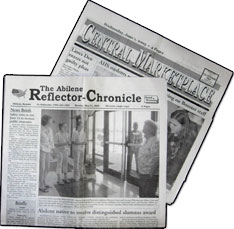

A healthier populace leads to fewer people on disability, and less stress on other safety nets, like welfare.Īnother problem Holman sees is how the expanded Medicaid in neighboring states affects the health industry in Kansas. Holman echoed Courtois’s view about the importance of helping people stay healthier, which in turn allows them to continue working.

“And doggone it, we’re not doing that and I think it is important for us to provide that healthcare for everybody.” “There are good people out there who can’t afford healthcare and they need it,” he said. It’s about doing the right thing, said Courtois, who describes himself as a right-wing conservative. While expanding Medicaid is a fiscally sound move, it’s not just about the money. Think about what it costs for us to take care of a person who has a stroke and becomes disabled for 10, 15, 20 years - it’s very expensive and it could have been prevented with Medicaid expansion and the right medications.” Or maybe they have high blood pressure and don’t get (medication,) and have a stroke. “People who don’t get the right medication end up on disability. “What happens on the back side is the care becomes much more expensive,” Courtois said. When people don’t have access to health coverage, they don’t get the preventive healthcare they need, which ends up costing more in the long run. That is $78 million that would go to helping people get and stay healthy. For 2023 it is predicted at $2.1 million, and Medicaid spending would increase to $78 million, if the state has expanded KanCare, he said. The economic impact for Kansas in 2022, toward the last quarter of the year, would have been an additional $875,000 in commerce dollars meaning the money that is paid by Medicaid and then rotated through the economy for such things as medication. “That money is going to other states.”Ĭourtois said some people wrongly believe expanding Medicaid will cause a financial burden on the state. “The federal funds that we have forfeited to date in Kansas is almost $6 trillion,” said Harold Courtois, chief executive officer at Memorial Health System, Abilene. In not doing so, it has left trillions of dollars on the table. Kansas is one of 11 states that has not expanded its Medicaid program. In November, South Dakota became the 39th state in the nation to expand Medicaid when voters approved a ballot initiative with 56 percent of the vote. “There really aren’t very many people who meet that criteria,” she said. To meet the income threshold a household of one parent and two children cannot earn more than $8,750 a year according to the federal poverty guidelines. If you are a childless adult, it doesn’t matter how little money you make, how low your income is, you don’t qualify.” earn no less than 38 percent of the federal poverty line. have a child under the age of 19 at home and B. “Right now, we have very limited criteria where an adult can qualify,” Holman said. And to make sure people realize … they will have to get back into submitting the information to verify that they are still eligible.”īecause Kansas legislators have yet to approve expanded for Medicaid, there will be people who will lose their eligibility for KanCare, she said. We are trying to … help people realize that they need to make sure their information is correct with their managed care organization, or with the state. “Particularly that the state has the most recent mailing address for participants in KanCare so, as these notices go out they are going to (get them). “There are a lot of things that could have happened that might make it difficult for people to realize they need to reenroll,” Holman said.

In preparation, Holman said the alliance is working to get the word out to people that they need to ensure all their documentation is updated. “I’m hearing that it’ll be next spring sometime, possibly in March, but we don’t know for sure.” “We don’t know when it will end,” said April Holman, executive director for the Alliance for a Healthy Kansas. The last renewal was in November, which extends it to Jan. The public health emergency declaration is revisited every 90 days. Soon after the pandemic started shutting down offices and businesses the federal government declared a public health emergency, which put a temporary halt to the annual reenrollment for KanCare.ĭuring the public health emergency, no state was allowed to end a person’s eligibility for Medicaid - that pause may come to an end in the next few months.


 0 kommentar(er)
0 kommentar(er)
